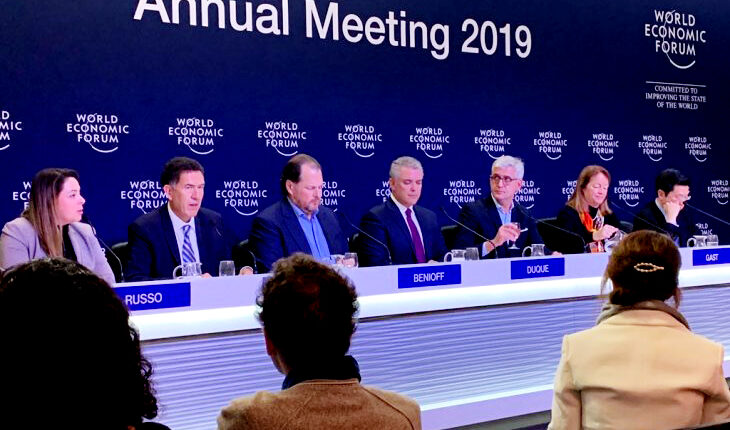Ravi Chellam stresses on the need to take into account biodiversity and natural ecosystems
The COVID-19 pandemic has taught us many lessons. It made us realise that we are a part of nature and emphasised the urgent need to protect the ecological functions of the biosphere we live in. It has unequivocally highlighted how vital the health of the planet is for our individual and collective well-being as well as the growth of our economies.
The pandemic has resulted in huge economic losses. Globally, the GDP is expected to contract 2.4% to 8% in 2020. The World Economic Forum (WEF) estimates that the global cost of dealing with the pandemic could be from $8.1 trillion to $15.8 trillion. Preventing such pandemics will cost only a fraction of this amount, estimated at $22.2 billion to $30.7 billion a year, and this is without factoring in the human suffering.
We have to recognise that there would not be an economy without the natural environment. Global studies documenting human ecological footprint, the decline in wildlife populations, and the conversion rates of natural ecosystems for other uses, place India among countries experiencing the highest rates of negative change. This increases our vulnerability towards catastrophes, including pandemics. Additionally, there is a strong correlation between human density, richness of biodiversity, and the emergence of zoonotic pathogens of wild origin, which renders India particularly vulnerable. With high human densities — among the highest diversity of mammals in the world — and a saturated interface between humans and wildlife, India is considered to be among the hotspots for zoonotic emerging and re-emerging infectious diseases.img
The WEF’s Global Risks report for 2021 states that environmental risks continue to threaten the global economy. The top five risks are extreme weather, climate action failure, human environmental damage, infectious diseases and biodiversity loss. In terms of impact, infectious diseases top the list, followed by climate action failure. The top two risk response blind spots are climate action failure and biodiversity loss.
Our models of development and our notions about them have to change. Destruction of environment should no longer be justified in the name of development. Like all pandemics, COVID-19’s emergence has been entirely driven by unchecked activities in the name of development. Rampant destruction of natural habitats, especially due to mining and infrastructure development, continued expansion and intensification of agriculture and animal husbandry as well as unrestrained consumption have disrupted nature, increased contact between wildlife, livestock, pathogens and people, setting the stage for the pandemic to take hold of our lives. Pandemic risk can be significantly lowered by reducing human activities that drive the loss of biodiversity as it will help prevent the spillover of new diseases.
A study by Swiss Re Institute published in 2020 introduces a new biodiversity and ecosystem services index. It found that globally, 20% of countries, including India, have fragile ecosystems. It also states that 55% of the global GDP depends on high-functioning biodiversity and ecosystem services.
It is evident that policymakers should factor biodiversity and ecosystems into their economic decision-making. This will accelerate the transition from a fossil fuel-based economy to sustainable, equitable, inclusive and just development models. The Economics of Biodiversity: The Dasgupta Review, commissioned by HM Treasury and released on February 2, 2021, highlights the grave risks faced by the world because of the failure of economics to take into account the rapid degradation of nature. The review stresses the need to find new measures for growth and development to avoid a catastrophic breakdown. The world’s governments need to come up with a form of national accounting that is different from the GDP model, and the new system has to account for the depletion of nature and natural resources.
The evidence is overwhelming. All budgets need to reduce investments, including subsidies, in activities that will further degrade our natural habitats. By orders of magnitude, we should enhance investment in research in sustainability science.
A National Mission on Biodiversity and Human Well-Being has been approved by the Prime Minister’s Science Technology and Innovation Advisory Council. The overarching objectives are to restore and enhance biodiversity, strengthen its sustainable use, generate thousands of green jobs and encourage the Indian public to appreciate the natural and associated cultural treasures that we have collectively inherited. This initiative has the potential to enable India to play a global leadership role in linking conservation with tangible human well-being outcomes.
Ravi Chellam is CEO, Metastring Foundation and is associated with Biodiversity Collaborative, Bengaluru. Views expressed are his own
The pandemic has resulted in huge economic losses. Globally, the GDP is expected to contract 2.4% to 8% in 2020. The World Economic Forum (WEF) estimates that the global cost of dealing with the pandemic could be from $8.1 trillion to $15.8 trillion. Preventing such pandemics will cost only a fraction of this amount, estimated at $22.2 billion to $30.7 billion a year, and this is without factoring in the human suffering.
We have to recognise that there would not be an economy without the natural environment. Global studies documenting human ecological footprint, the decline in wildlife populations, and the conversion rates of natural ecosystems for other uses, place India among countries experiencing the highest rates of negative change. This increases our vulnerability towards catastrophes, including pandemics. Additionally, there is a strong correlation between human density, richness of biodiversity, and the emergence of zoonotic pathogens of wild origin, which renders India particularly vulnerable. With high human densities — among the highest diversity of mammals in the world — and a saturated interface between humans and wildlife, India is considered to be among the hotspots for zoonotic emerging and re-emerging infectious diseases.img
The WEF’s Global Risks report for 2021 states that environmental risks continue to threaten the global economy. The top five risks are extreme weather, climate action failure, human environmental damage, infectious diseases and biodiversity loss. In terms of impact, infectious diseases top the list, followed by climate action failure. The top two risk response blind spots are climate action failure and biodiversity loss.
Our models of development and our notions about them have to change. Destruction of environment should no longer be justified in the name of development. Like all pandemics, COVID-19’s emergence has been entirely driven by unchecked activities in the name of development. Rampant destruction of natural habitats, especially due to mining and infrastructure development, continued expansion and intensification of agriculture and animal husbandry as well as unrestrained consumption have disrupted nature, increased contact between wildlife, livestock, pathogens and people, setting the stage for the pandemic to take hold of our lives. Pandemic risk can be significantly lowered by reducing human activities that drive the loss of biodiversity as it will help prevent the spillover of new diseases.
A study by Swiss Re Institute published in 2020 introduces a new biodiversity and ecosystem services index. It found that globally, 20% of countries, including India, have fragile ecosystems. It also states that 55% of the global GDP depends on high-functioning biodiversity and ecosystem services.
It is evident that policymakers should factor biodiversity and ecosystems into their economic decision-making. This will accelerate the transition from a fossil fuel-based economy to sustainable, equitable, inclusive and just development models. The Economics of Biodiversity: The Dasgupta Review, commissioned by HM Treasury and released on February 2, 2021, highlights the grave risks faced by the world because of the failure of economics to take into account the rapid degradation of nature. The review stresses the need to find new measures for growth and development to avoid a catastrophic breakdown. The world’s governments need to come up with a form of national accounting that is different from the GDP model, and the new system has to account for the depletion of nature and natural resources.
The evidence is overwhelming. All budgets need to reduce investments, including subsidies, in activities that will further degrade our natural habitats. By orders of magnitude, we should enhance investment in research in sustainability science.
A National Mission on Biodiversity and Human Well-Being has been approved by the Prime Minister’s Science Technology and Innovation Advisory Council. The overarching objectives are to restore and enhance biodiversity, strengthen its sustainable use, generate thousands of green jobs and encourage the Indian public to appreciate the natural and associated cultural treasures that we have collectively inherited. This initiative has the potential to enable India to play a global leadership role in linking conservation with tangible human well-being outcomes.
Ravi Chellam is CEO, Metastring Foundation and is associated with Biodiversity Collaborative, Bengaluru. Views expressed are his own






